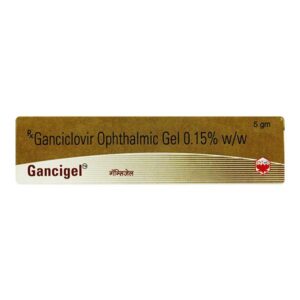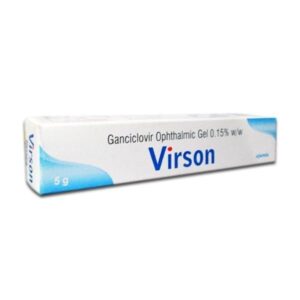GANCICLOVIR
GANCICLOVIR: Ganciclovir is an antiviral drug that is primarily used for the treatment and prevention of infections caused by certain viruses, including cytomegalovirus (CMV). It is available in various formulations, including intravenous (IV) infusion, oral capsules, and an ophthalmic gel.
The primary mechanism of action of ganciclovir is inhibition of viral DNA synthesis by acting as a substrate for viral DNA polymerase. It is converted into its active form, ganciclovir-triphosphate, by viral and cellular kinases. Ganciclovir-triphosphate competes with deoxyguanosine triphosphate (dGTP) for incorporation into viral DNA, leading to chain termination and prevention of viral replication.
Ganciclovir can be administered as an IV infusion for systemic infections, as oral capsules for maintenance therapy, or as an ophthalmic gel for CMV retinitis. The dose and duration of treatment depend on the indication and severity of the infection. Treatment courses can range from a few weeks to several months.
Common side effects of ganciclovir may include bone marrow suppression (leading to decreased blood cell counts), nausea, vomiting, diarrhea, headache, and fever. It can also cause kidney toxicity, so regular monitoring of renal function is necessary during treatment. Ganciclovir has a potential for causing birth defects and should not be used during pregnancy unless the potential benefits outweigh the risks. Additionally, ganciclovir can be carcinogenic in animals, but the risk in humans is not well established.
It is important to note that ganciclovir can have significant side effects and requires close monitoring. Therefore, it should only be used under the supervision of a healthcare professional who can properly manage its potential risks and benefits.


